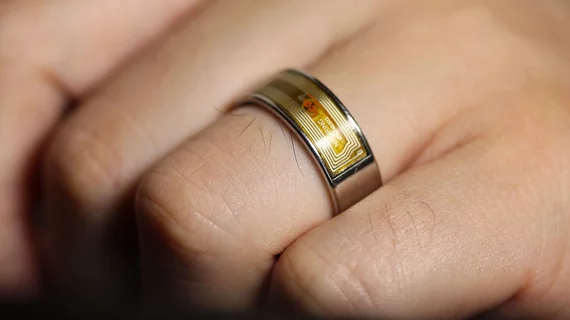Coronavirus researchers looking for smart-ring wearers
The Finnish maker of the Oura health-tracking finger ring is sponsoring a two-pronged, AI-aided COVID-19 study at the University of California, San Francisco (UCSF).
One arm of the research will look for signs of the virus in 2,000 ring-equipped healthcare workers who have daily contact with UCSF Health patients. The other will be open to anyone who already uses the ring.
Drawing data from ring-wearers’ body temperature, respiration and heart rate, the team will concurrently ask participants to complete daily surveys on symptoms of illness.
From these information feeds the researchers will build an algorithm to spot patterns of onset, progression and recovery. Their hope is that the AI-guided approach will inform best COVID-19 care practices going forward.
In addition, the project, called TemPredict, could “open the door for research into tracking and managing other illnesses and conditions,” according to an announcement from Oura, whose U.S. headquarters are in San Francisco.
Click here for the announcement and here if you’re an Oura user interested in participating.

